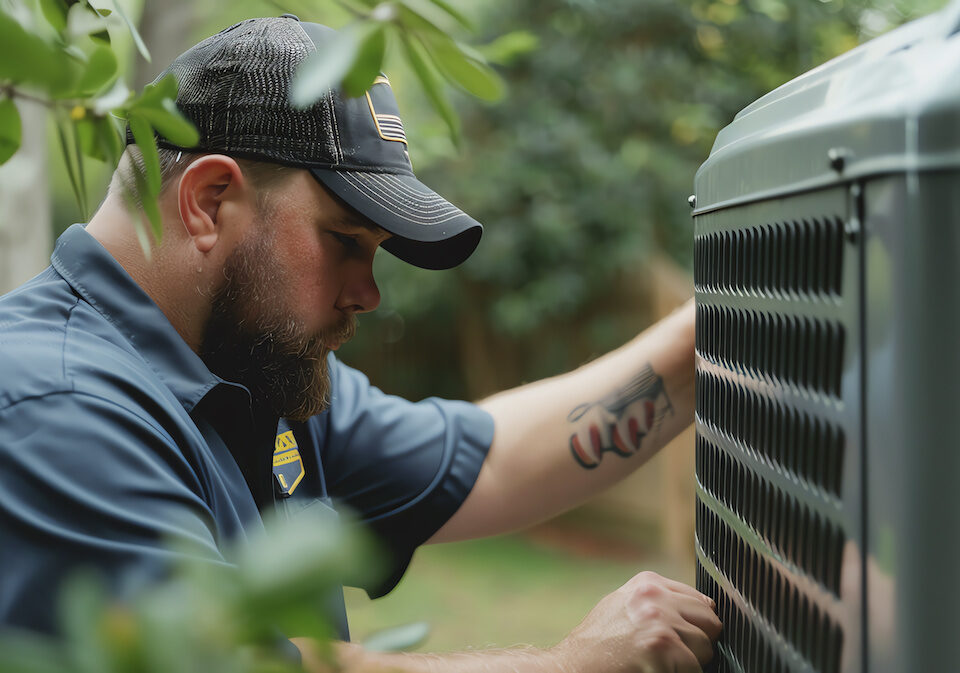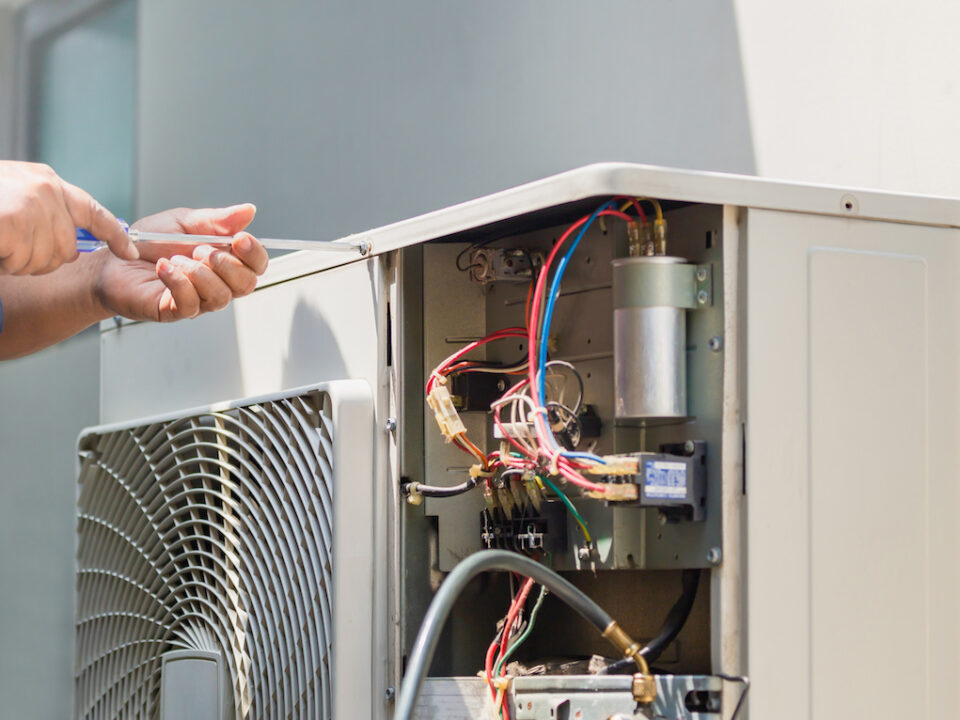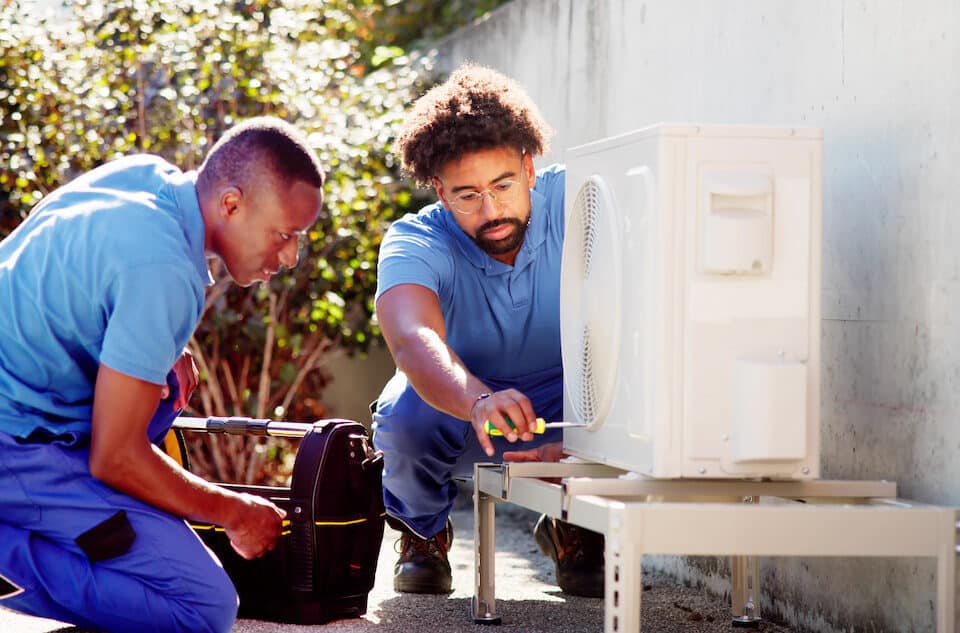10 Common HVAC Safety Hazards
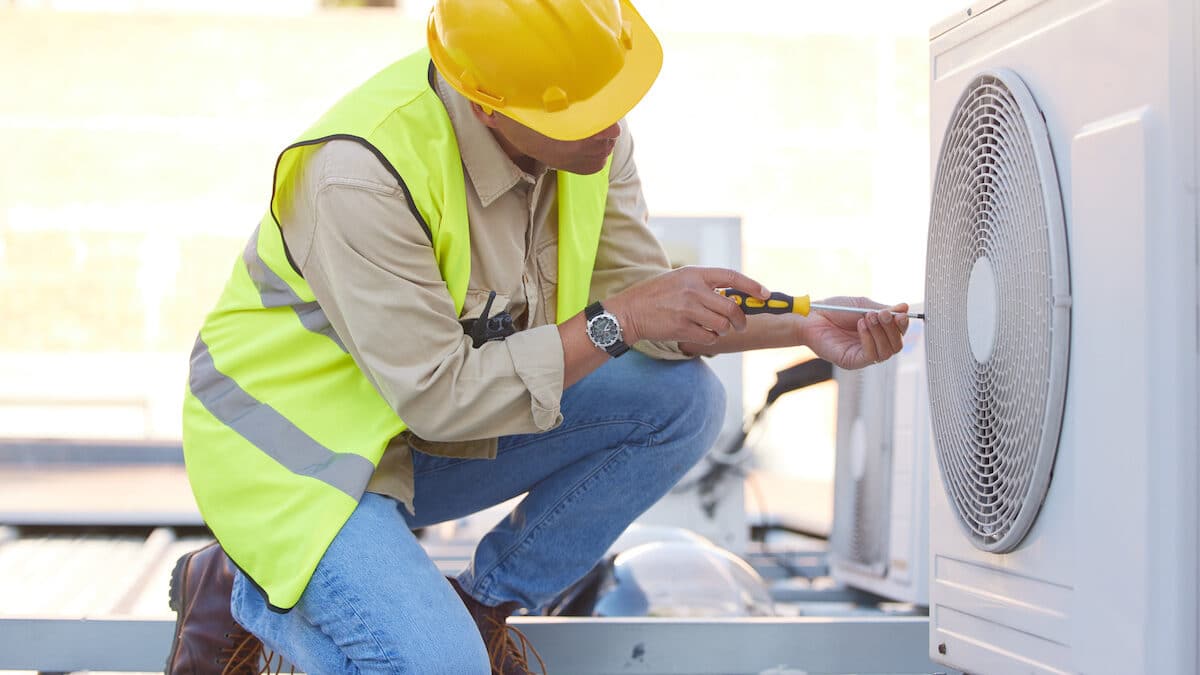
Your heating, ventilation, and air conditioning (HVAC) system is an essential component of your home, providing comfort, clean air, and temperature control. While HVAC systems are designed to be safe and efficient, there are common safety hazards associated with their operation and maintenance.
To ensure the well-being of your home and family, it’s crucial to be aware of these potential risks and take preventive measures. In this blog, we’ll explore the ten most common HVAC safety hazards and provide you with valuable insights on how to safeguard your home and health. We’ll also explain why it’s important to reach out to a heating and air professional if you run into any of these HVAC safety hazards.
Watch for These Common HVAC Safety Hazards
1. Poor Indoor Air Quality
Indoor air quality is a significant concern, as it directly impacts the health and well-being of your household. An HVAC system that isn’t adequately maintained can become a breeding ground for mold, dust mites, and bacteria, leading to poor indoor air quality.
Regular maintenance, including filter changes and cleaning, is essential to prevent these issues.
2. Carbon Monoxide Leaks
Carbon monoxide (CO) is a colorless, odorless gas that can be produced by malfunctioning or improperly installed HVAC systems. Exposure to CO can lead to serious health risks, including poisoning and even death.
To prevent CO leaks, it’s essential to install carbon monoxide detectors and have your HVAC system inspected regularly.
3. Electrical Hazards
HVAC systems involve electrical components, making them susceptible to electrical hazards. Faulty wiring or electrical malfunctions can result in electrical fires.
Routine maintenance, performed by a qualified technician, can identify and address potential electrical issues before they become hazardous.
4. Combustion Gas Leaks
In heating systems, combustion gases are produced and vented safely outdoors. However, leaks or blockages in the ventilation system can result in the release of these gases indoors, posing a significant health risk.
Regular inspections and maintenance of ventilation systems are essential to prevent combustion gas leaks.
5. Refrigerant Leaks
Refrigerant is a critical component in air conditioning systems. If there is a refrigerant leak, it can not only affect the efficiency of your HVAC system but also pose health risks. Inhaling refrigerant fumes can lead to health issues, and the environmental impact of refrigerant leaks is also a concern.
Regular maintenance and prompt repair of any leaks are vital.
6. Poorly Maintained Equipment
Neglecting regular HVAC maintenance can lead to various safety hazards. Clogged air filters, dirty coils, and blocked ducts can reduce the efficiency of your system, leading to overheating and potential fire hazards. Ensure your HVAC system receives regular professional maintenance to keep it in top condition.
7. Blocked Air Vents and Ducts
Blocked or obstructed air vents and ducts can result in reduced airflow, uneven heating or cooling, and strain on your HVAC system. This can lead to overheating and increased energy consumption.
Regularly inspect and clean air vents and ducts to prevent these issues.
8. Improper Installation
Improper HVAC installation can result in a range of problems, from inefficiency to safety hazards. It’s essential to hire a qualified technician to install your HVAC system correctly and in compliance with local building codes. Improper installation can lead to issues such as:
- Gas leaks
- Carbon monoxide exposure
- Electrical problems
9. Inadequate Ventilation
Adequate ventilation is crucial for ensuring that combustion gases and indoor air pollutants are properly vented outside. Inadequate ventilation can lead to a buildup of harmful gases, posing serious health risks.
Regularly inspect and maintain your ventilation systems to ensure they are functioning properly.
10. Lack of Carbon Monoxide Detectors
Carbon monoxide detectors are a critical safety measure in any home with gas-burning appliances, including HVAC systems. These detectors can alert you to the presence of carbon monoxide, allowing you to take immediate action. Make sure your home is equipped with functioning carbon monoxide detectors in the appropriate locations.
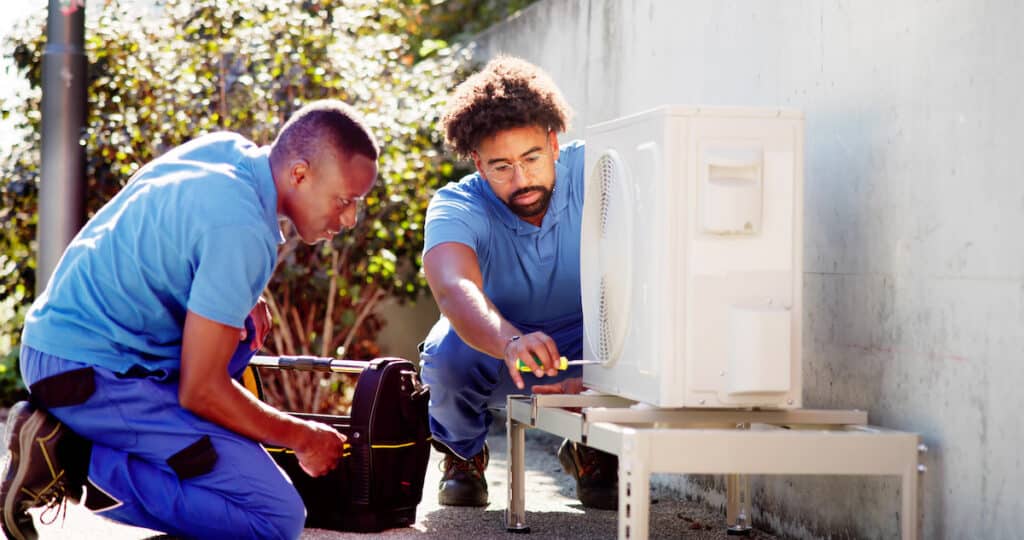
Preventive Measures for HVAC Safety
To protect your home and health from common HVAC safety hazards, consider implementing the following preventive measures:
- Regular Maintenance: Schedule annual HVAC maintenance with a qualified technician to ensure that your system operates safely and efficiently.
- Carbon Monoxide Detectors: Install carbon monoxide detectors on every level of your home and near sleeping areas.
- Proper Installation: Ensure your HVAC system is correctly installed by a qualified technician, following local building codes and safety regulations.
- Clean Air Filters: Change or clean air filters regularly, following manufacturer recommendations.
- Ventilation Inspection: Periodically inspect and maintain your ventilation systems to ensure adequate airflow and proper venting of gases.
- Refrigerant Leak Detection: Regularly inspect your HVAC system for refrigerant leaks and promptly address any issues.
- Duct Cleaning: Schedule duct cleaning to prevent blockages and maintain proper airflow.
- Electrical Safety: Inspect your HVAC system for electrical issues and ensure all wiring is secure and up to code.
- Educate Your Family: Educate your family members about HVAC safety and the importance of recognizing signs of trouble, such as unusual odors or sounds.
- Emergency Procedures: Establish emergency procedures for potential HVAC hazards, such as shutting off the system and evacuating the premises.
By being vigilant and proactive about HVAC safety, you can ensure that your home remains a comfortable and secure environment for you and your family. Regular maintenance, proper installation, and the use of safety devices like carbon monoxide detectors are essential steps in safeguarding your home and health from common HVAC safety hazards.
Trust Heating and Air: Your Reliable Partner for HVAC Safety
When it comes to HVAC safety, having a dependable and experienced partner is essential for ensuring the well-being of your home and family. That’s where Trust Heating and Air comes into the picture.
Our commitment to HVAC safety and our expertise in addressing common safety hazards make us the ideal choice for homeowners in Gwinnett and Walton Counties in Northeast Georgia who want to maintain a safe and comfortable living environment.
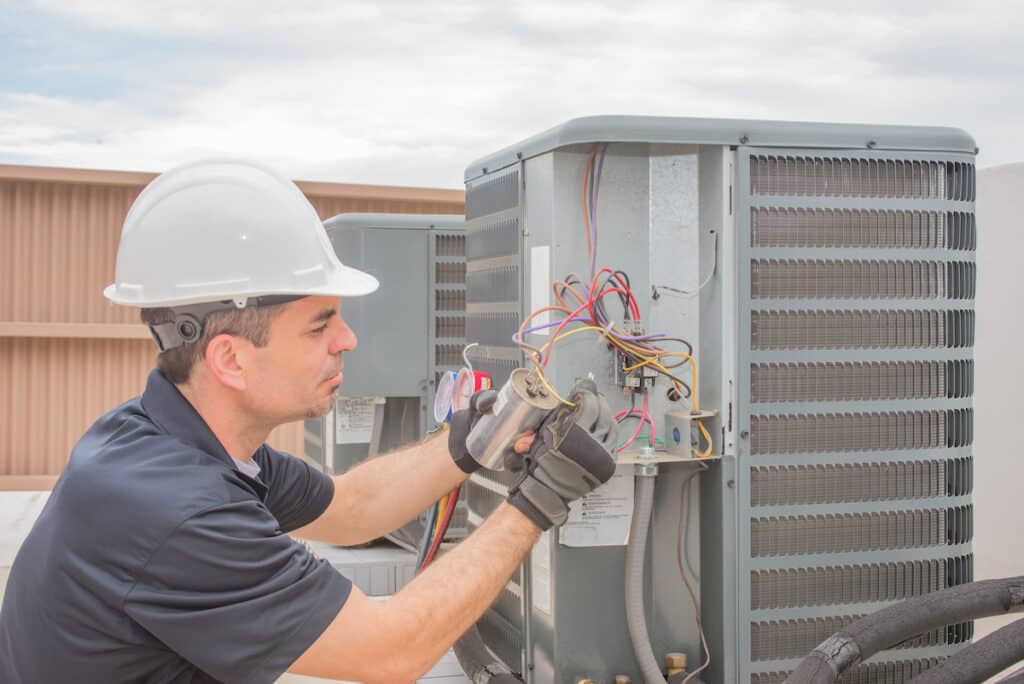
Why Choose Trust Heating and Air?
1. Experience and Expertise
With years of experience in the HVAC industry, Trust Heating and Air has encountered and successfully resolved a wide range of safety hazards. Our team of certified technicians is well-versed in identifying potential issues and implementing effective solutions. We stay updated on the latest safety protocols and industry best practices, ensuring that your HVAC system is in safe hands.
2. Comprehensive Maintenance Services
Preventive maintenance is at the core of HVAC safety, and Trust Heating and Air offers comprehensive maintenance services to keep your system running smoothly. To address any potential safety hazards before they become major issues, we provide thorough:
- Inspections
- Cleaning
- Repairs
Regular maintenance not only ensures safety but also extends the lifespan of your HVAC system.
3. Emergency Repairs
In the event of a safety hazard or HVAC system malfunction, Trust Heating and Air is available for emergency repairs. Our team understands that some issues require immediate attention to prevent further risks. We offer swift response times and efficient solutions to restore safety and functionality to your HVAC system.
4. Carbon Monoxide Detection
Carbon monoxide (CO) is a silent and deadly threat that can arise from HVAC systems. Trust Heating and Air can install carbon monoxide detectors in your home to provide an added layer of protection. Our technicians are skilled in identifying and addressing potential CO issues, offering peace of mind to you and your family.
5. Quality Installations
Improper HVAC installation is a common safety hazard. When you choose Trust Heating and Air for HVAC installations, you can trust that the job will be done correctly and in compliance with all safety standards. Our installations are:
- Efficient
- Safe
- Built to last
6. Educational Support
At Trust Heating and Air, we believe that informed homeowners are safer homeowners. We take the time to educate our customers about HVAC safety and the signs of potential hazards. We want you to be able to recognize issues and take preventive measures when needed.
7. Transparent and Honest Service
Trust Heating and Air is built on a foundation of trust and transparency. We provide clear explanations of the issues we find and the solutions we recommend. We never suggest unnecessary repairs or replacements, and we always provide fair and competitive pricing.
8. Customer-Centric Approach
We prioritize customer satisfaction and safety above all else. Our team is dedicated to providing you with a seamless and stress-free experience. We take the time to understand your unique HVAC needs and tailor our services accordingly.
9. Local and Reliable
As a local HVAC service provider, Trust Heating and Air understands the specific needs and challenges of Gwinnett and Walton Counties in Northeast Georgia. We take pride in being a reliable and trusted partner in the community, offering timely and efficient services.
10. Peace of Mind
With Trust Heating and Air by your side, you can enjoy peace of mind knowing that your HVAC system is in safe and capable hands. We take your safety seriously and work diligently to ensure that your home remains a secure and comfortable environment.
When it comes to HVAC safety, you need a partner you can rely on. Trust Heating and Air is that partner, offering the experience, expertise, and commitment to safety that you can trust. Contact us today to schedule your HVAC maintenance, installations, or emergency repairs.
Your safety and comfort are our top priorities, and we’re here to provide the dependable HVAC services you need.

